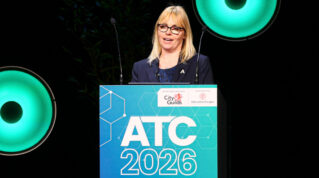A chartered professional body made record high turnover last year after the management apprenticeships it assesses continued to soar in popularity despite the pandemic.
Surging income, which one expert said should ring alarm bells across government, was disclosed in the latest filed accounts for the Chartered Management Institute.
Turnover jumped from £18.1 million in 2019/20 to £21.5 million in 2020/21 – a 19 per cent increase and the highest ever recorded for the charity.
CMI is approved to end-point assess (EPA) eight apprenticeship standards from the level 3 team leader to the controversial level 7 senior leader degree.
Its financial statements show that apprentice registrations reached 16,232 last year – 13 per cent up year on year “when the national picture was down by 40 per cent” due to the pandemic.
CMI also signed off 7,792 EPAs last year – up 90 per cent. The charity said the prices it charges for EPA are “confidential”, but FE Week previously found that fees can range from £650 to £1,400 per apprentice, depending on which standard is being assessed.
EPA “is now a significant contributor to income”, the accounts state.
CMI told FE Week it was the first end-point assessment organisation to gain approval to move all assessments online during the pandemic. But the company refused to say whether it lowered assessment fees following this switch.
The accounts explain that a portion of the overall assessment fee is recognised “immediately” upon registration, while the rest is deferred and recognised when the learners undertake this work.
The charity’s apprenticeship-driven rise in turnover in 2020/21 is all the more impressive as nearly all other sectors saw huge drops in apprenticeships owing to the multiple lockdowns and impacts on business caused by Covid-19.
It would be very surprising and disappointing if there was anything other than a growth in management apprenticeships
A CMI spokesperson said the “desperate need” to grow the technically skilled management workforce of the UK has been “identified time and time again by the government and many others” and it would be “very surprising and disappointing if in these circumstances there was anything other than a growth in standards-based management apprenticeships”.
The spokesperson added that CMI’s qualifications, membership and the “Chartered Award” it offers are “highly valued by employers and employees alike” and the organisation will continue to promote apprenticeship “so to support good management, social mobility, future productivity and innovation”.
CMI’s accounts show the firm ended 2021 with “record cash and reserves” in addition to record income.
In turn, chief executive Ann Francke received a 25 per cent pay hike as she took home £348,000 which included a £75,000 bonus, compared to £279,000, with a £12,000 bonus, the year before.
The charity said the bonus was “in recognition of the successful achievement of financial and non-financial targets” as income and learner registrations on “our highly regarded standards of all types”, not just apprenticeships, has grown.
Management apprenticeships have rocketed since the levy reforms in 2017. Starts on the eight standards CMI assesses, for example, have grown from 3,400 in 2017/18 to 59,640 in 2020/21.
But their rise has not been collectively welcomed – mostly because starts on lower-level apprenticeships and for young people have dropped over the same period.
Ministers have appeared to partially agree with the concerns. The popular level 7 senior leader degree apprenticeship has had its MBA component removed from public funding after then education secretary Gavin Williamson said he was “not convinced the levy should be used to pay for staff, who are often already highly qualified and highly paid, to receive an MBA”.
But other officials have championed the rise in management apprenticeships.
A board member of the Institute for Apprenticeships and Technical Education said in 2017 that the “number one reason for our lower productivity has been analysed as leadership and management.
“And that’s why degree apprenticeships and investing in people in terms of the right management is so important, not just for individuals, not just for the company, but for the economy at large.”

Tom Richmond, a former adviser to two skills ministers and now director of think tank EDSK, told FE Week that given the dramatic growth in management apprenticeships before the pandemic, it is “no surprise to see organisations like the CMI continuing to cash in on these lucrative courses, even though their actions will almost certainly have meant that young people were denied the funding they needed to start an apprenticeship over the last couple of years”.
“The soaring income and huge bonuses at the CMI should be ringing alarm bells right across government because it is disheartening to see senior and often experienced executives, including at major multinational companies, being given priority, while some of the least privileged members of our society are simply left waiting for the chance to start their career,” he said.
But Mandy Crawford-Lee, chief executive of the University Vocational Awards Council, said the use of management apprenticeships should “not only be allowed but should be encouraged and celebrated” because the programmes “support social mobility, raise productivity and improve the delivery of public sector services”.
She told FE Week it was concerning that “good” employers that have “historically done the right thing and invested in the training and development of their staff are now criticised for using their levy payments to continue to invest in the training and development their employees need”.
Stephen Evans, who heads up the Learning and Work Institute, said his organisation’s research has found employers are investing 28 per cent less per employee than in 2005, with graduates three times more likely to get training than those with no qualifications.
He added that investment in management is “important, but shouldn’t come at the expense of opportunities for career starters and those with lower qualifications”.
















Hopefully an extreme case and not used to generally think that all aspects of apprenticeships are over funded.
Presumably, EPAO’s have a vested interests when managing supply (unmet demand = higher fees) and managing quality (revenue from re-sits), which has implications for achievement rates and timely achievement.
£300k CEO salary on a turnover of £20m, in a registered charity. You’d think the Charities Commission would have a view on linking bonusses to turnover.
Let’s hope it isn’t a new leadership salary gold rush like across the university sector when raising the fee cap and loans funding meant revenues (ie student debt) took off.
With no apparent sense of irony, the CMI speaks of the “desperate need” to grow the UK’s technically skilled management workforce, in which case we may be entitled to ask what exactly, then, has the CMI been up to for the last seventy-five years to have had so little impact. The answer might be something along the lines of doing very nicely, thank you. Meanwhile in another part of the same cosy woods, I suspect the University Vocational Awards Council is not the only vested interest to suggest that a scheme where the opportunity cost of the well off getting better off is borne by those who can least afford it is somehow a boon to social mobility, just the most brazen of them.